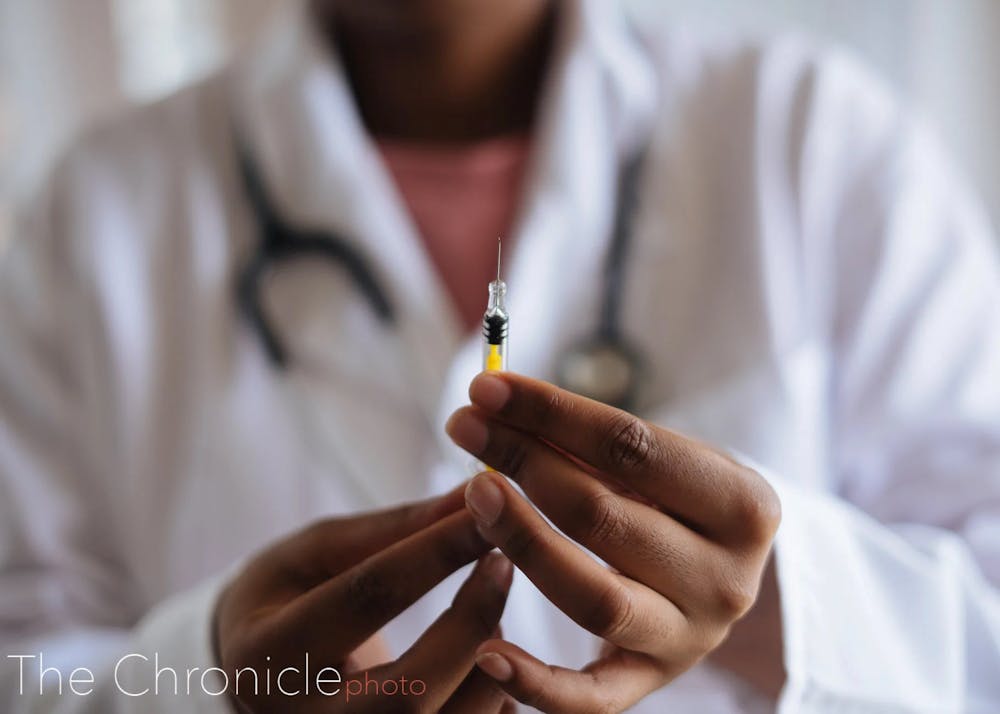Duke researchers lead joint research efforts to increase global fairness of COVID-19 vaccine
[ad_1]
Duke Health’s research initiatives have revealed that the global distribution of vaccines must become more equitable to end the COVID-19 pandemic.
The COVID Global Accountability Platform (COVID GAP), a joint research effort of Duke University and the COVID Collaborative, has conducted more than a year of research and policy analysis to better understand the ways in which the healthcare industry health can respond to pandemics like COVID-19.
“Beyond science and beyond technical research, it is becoming increasingly clear that there is a lack of transparency and accountability as one of the main drivers of [the] response that has not been adequate so far, â€said Krishna Udayakumar, head of global innovation for Duke Health and founding director of COVID GAP.
The past two weeks have seen the discovery of the Omicron variant of SARS-CoV-2, the virus that causes COVID-19. As of Friday, 43 Omicron cases had been reported in the United States. According to Udayakumar, this cycle of mutations will continue unless the global rollout of the vaccine changes.
“While we leave large parts of the world at risk of infection, we are not safe in the United States,†Udayakumar said.
Rising vaccination rates around the world are expected to stifle the continued transmission and mutation of the vaccine, and COVID GAP seeks to develop a global model that will facilitate unilateral successful vaccine deployment.
“[The model] serves as an external accountability mechanism that increases the ability of public and private sector leaders to do what is necessary to move forward, â€Udayakumar said.
COVID GAP has partnered with the COVAX Initiative of the World Health Organization and other international health organizations to promote the goals of equity in vaccine distribution. They are also working directly with the US government to create policies to better increase the efficiency of vaccine exports.
COVID GAP research examines all aspects of vaccine delivery, from creation to injection. They soon plan to bring together 60 to 70 global experts to discuss “how to most effectively address the bottlenecks in getting vaccines from airports to guns,” Udayakumar said.
Within the Duke Health system, the COVID GAP initiative uses its research resources from the Duke-Margolis Center for Health Policy, the Duke Global Health Institute and the Duke Global Health Innovation Center to strengthen its findings and disseminate research across a wide range. multinational organizations.
“I think an initiative like this is only feasible because we have such expertise,” Udayakumar said.
Udayakumar stressed the importance of expanding the scope of the pandemic, noting that the spread of the virus to any part of the world is a threat to the rest of the world. This world-shrinking effect couldn’t be more palpable, as the Omicron variant made its way to the United States within a week of being identified.
Get The Chronicle delivered straight to your inbox
Subscribe to our weekly newsletter organized by an editorial. Cancel anytime.
Although active research is generally not disclosed, the objectives of the research are clear. “We are thinking about the mechanism by which we can make the global response more equitable,†Udayakumar said.
From examining the logistics of a disenfranchised country to move vaccines to underdeveloped regions to motivating members of the public to get vaccinated, the COVID GAP initiative aims to provide answers to questions that prevent the pandemic from ending.
“Not only is a stronger and fairer global response the right thing to do; it also allows us to stay more secure, â€Udayakumar said.
James Cruikshank is a Trinity freshman and a reporter in the News Department.
[ad_2]


Comments are closed.